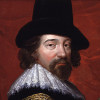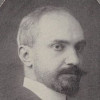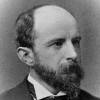“ If man had the singular fancy of making himself absurd,—a taste confined to himself but attested by evidence exceedingly strong,—he could be as absurd as he liked ”
Henry Adams, Mont-Saint-Michel and Chartres (1904). copy citation
| Author | Henry Adams |
|---|---|
| Source | Mont-Saint-Michel and Chartres |
| Topic | evidence taste |
| Date | 1904 |
| Language | English |
| Reference | |
| Note | |
| Weblink | http://www.gutenberg.org/cache/epub/4584/pg4584-images.html |
Context
“if he did not like his life he could stop it, and habitually did so, or acquiesced in its being done for him; while God could not commit suicide or even cease for a single instant His continuous action. If man had the singular fancy of making himself absurd,—a taste confined to himself but attested by evidence exceedingly strong,—he could be as absurd as he liked; but God could not be absurd. Saint Thomas did not allow the Deity the right to contradict Himself, which is one of man's chief pleasures. While man enjoyed what was, for his purposes, an unlimited freedom to be wicked,—a privilege which, as both Church and State bitterly complained and still complain, he has outrageously abused,—God was Goodness, and could be nothing else.”
source



